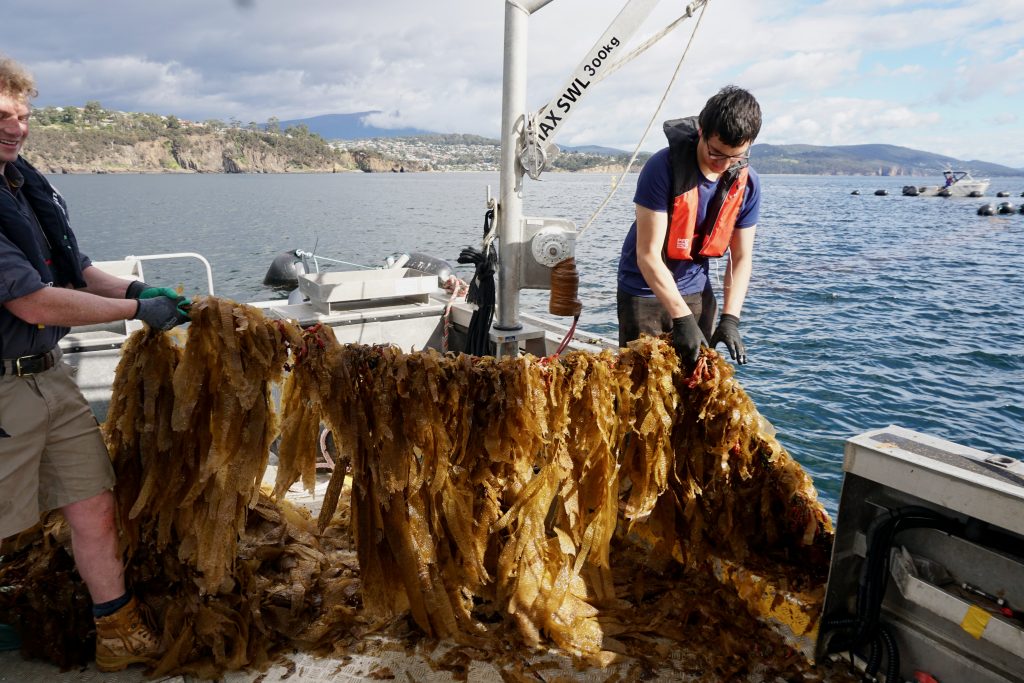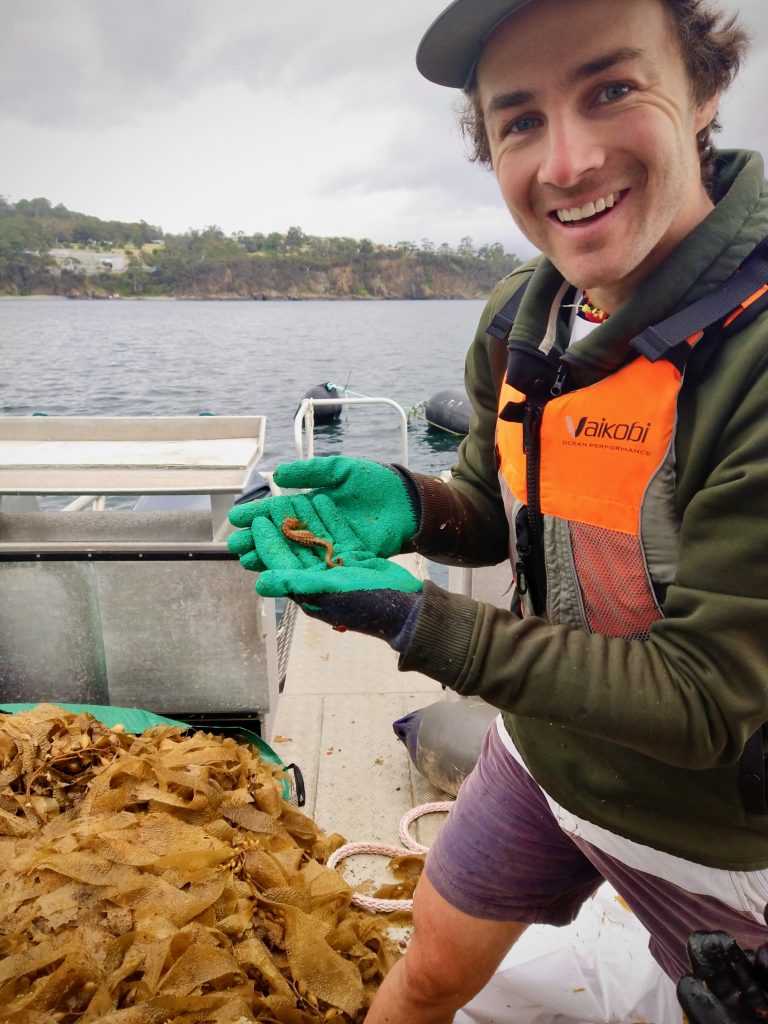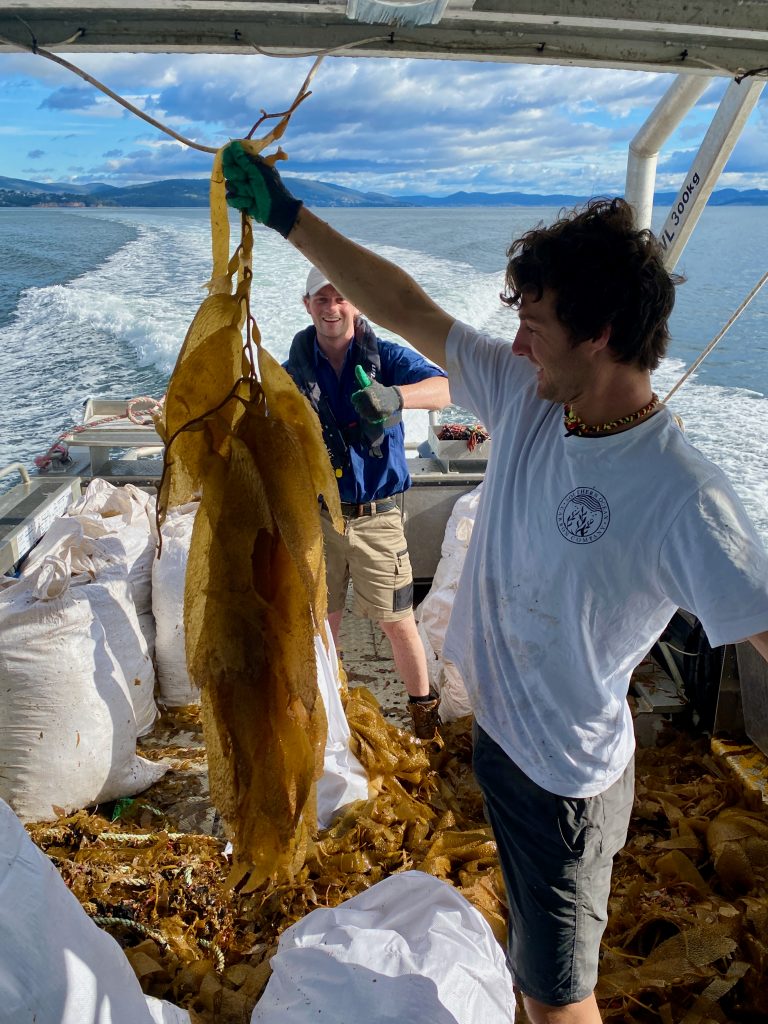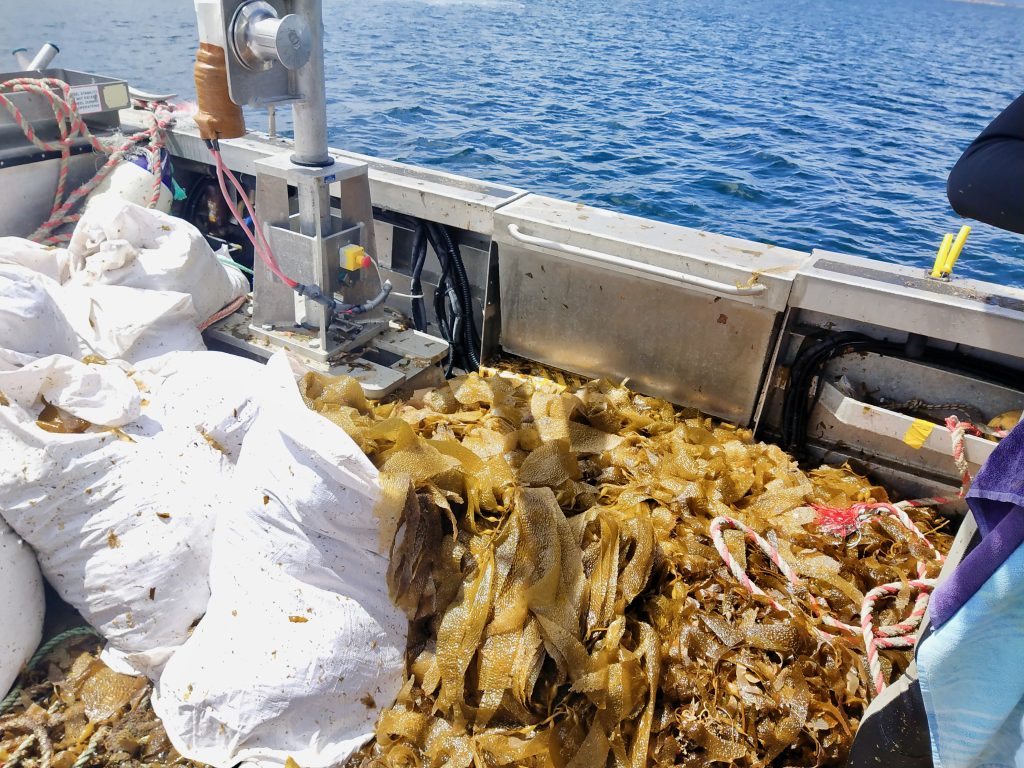2024 Kelp Harvest as Part of Our R&D Project – A Team Effort
Teams from Southern Ocean Carbon, ADEC Kedge, and the Institute of Marine and Antarctic Studies (IMAS) came together last week to harvest the Giant Kelp from the Tinderbox research lease as part of a partnership project with the Blue Economy CRC.
Less than six months ago, tiny kelp seedlings were planted on an array of grow lines and two growing rings at the farm out of Tinderbox, southern Tasmania. Within only a few months, this ocean farm produced an estimated 7 tonnes of Giant Kelp across the 360 meters of grow lines on the array.
Kelp Harvest Sneak Peak

The IMAS team worked underwater to release the grow lines from the fixed down-lines, taking care to ensure the structure maintained its structural integrity and stayed in place while releasing ropes. Callum, Lochie and Tim (ADEC Kedge/Southern Ocean Carbon) hauled these grow lines in one by one, harvesting the seaweed onboard the seaweed harvest vessel.
As each line was brought in, the kelp was carefully cut from the grow lines and placed into biodegradable 150L garden bags. Each bag contained around 40kg of seaweed and was stacked around the harvest vessel to make room for more harvesting space onboard. After harvesting 5 grow lines, the floor of the harvest vessel had disappeared under a mountain of fresh seaweed! It was time to unload.

More sorting and bagging took place on the way back to the marina, and the bags of seaweed were then hoisted onto the wharf and taken to a secure location. Fully unloaded, the Southern Ocean Carbon team headed back out for a second round of harvesting.
After a second bumper harvest from the lease, the team had harvested and bagged approximately 4.5 tonnes of kelp, with some grow lines still remaining on the lease waiting for harvest 3, which was scheduled for the next fair weather day, two days later.
Putting the Kelp to Good Use – Community Collaborations and Support

We were thrilled to see some of this seaweed handed over to the Aboriginal Rangers Team at SETAC (South East Tasmanian Aboriginal Corporation), who plan to use the seaweed for educational and cultural purposes in the near future.
The majority of the seaweed was handed over to Bodie and the team from The New Black Biochar, who plan to use the biomass to make a sustainable biochar product. These guys are sustainability champions who set out to transform waste organic material such as waste woods, agricultural waste and green waste, into a valuable resource through a closed-loop pyrolysis system, sequestering carbon for the long term.
Kelp Wanted! Must Love the Ocean!

Want to use some of the kelp harvested? With more seaweed due to be harvested from the rings at some stage in the new year, more opportunities will exist for free seaweed collection!
If you have a good purpose for our fresh seaweed (it makes a fantastic fertiliser or an incredibly nutritious additive to a compost pile that worms will simply love), then let us know. We may be able to save a bag for you to take away for your own sustainability projects.




